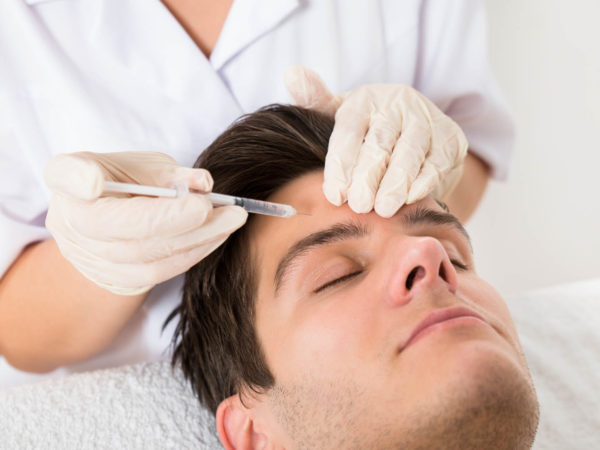Why Does Eating Make Me Sweat?
I tend to break out in a sweat at every meal. It’s very embarrassing, and it’s driving me crazy. I hesitate to accept dinner invitations or eat in restaurants. Do you know why this happens, and if there’s anything I can do about it?
Andrew Weil, M.D. | June 6, 2013

The type of food-related perspiration you describe is called “gustatory sweating,” meaning perspiring pertaining to taste or tasting. With this problem, you can start to perspire while you’re eating and, sometimes, even when you’re just thinking about food. The sweat usually breaks out on the face, hairline and neck and can be profuse.
Some cases of gustatory sweating are due to surgical or other injury to a parotid gland, or more specifically, to the auriculotemporal nerve that controls saliva production by the parotids. There are two of these glands, one behind each cheek. Approximately 24 percent of patients who have surgery to remove a parotid gland experience gustatory sweating afterward. If a nerve injury is the cause of the sweating, you’ll experience perspiration on just one side of the face. With the parotid gland gone, the nerve attaches itself to sweat glands, with the result that instead of salivating when you eat or even think of food, you begin to sweat. The name for this particular injury and the sweating it leads to is Frey’s Syndrome, after the Polish physician who first described it, Lucja Frey-Gottesman, one of the first female academic neurologists in Europe.
The type of foods you eat can also cause you to break out in a sweat. This is most likely to happen with hot and spicy meals, but even hot soup or hot tea can turn on the sweat. Here, the explanation for the perspiration is clear; the hot foods raise your body temperature enough to set off your body’s cooling mechanism, otherwise known as perspiration. This reaction can also be associated with diabetes, Parkinson’s disease, cluster headache, or shingles. If one of these medical conditions is responsible, the sweating usually occurs on both sides of the face, temples, forehead, cheeks, neck or chest and around the lips.
If some underlying illness is the cause, treating it may solve your sweating problem. If not, the sweating itself can be addressed with antiperspirants (those sold over the counter or prescription-strength). Be sure to test any antiperspirant that you plan to use on your face on a small area of skin elsewhere to make sure that it isn’t irritating. The International Hyperhidrosis Society recommends using a soft-solid formulation for the face and applying it around the hairline.
Another solution is Botox injections, which are reported to successfully control excessive facial sweating (hyperhidrosis) for several years. If you want to go this route, be sure to find a dermatologist who has experience treating patients with hyperhidrosis.
Andrew Weil, M.D.









